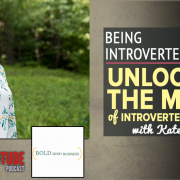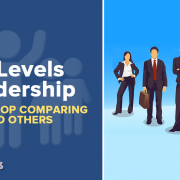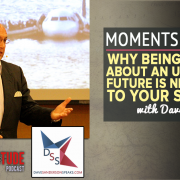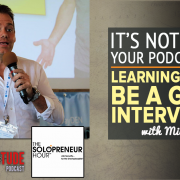Kate St Hilaire – Being Introvertedly Bold: Unlocking the Magic of Introverted Intuition (AoL 121)
Introverts are said to be geeks, lonely, and awkwardly shy. At least that’s what society would have us all believe. Many of us use that stereotype as a means to stay in our comfort zone.
In fact, we trick ourselves to think that extroverts are the only people who can make a big impact in the world. I mean, they’re people-people, right?
Actually that’s not totally the case. Some of the most influential figures in tech, art, and business have been and are introverts.
So how do we embrace our introversion and use it as a superpower?
That’s what today’s guest, Kate St Hilaire, helps members of her Facebook community with.
Join us as we talk about how she found herself in this business and how you can use your leverage your intuition as a super power!
Enjoy!
SPECIFICALLY, YOU’LL FIND OUT MORE ABOUT:
- When did Kate realize there was a big difference between introverts and extroverts? 8:05
- Why did she pursue studying Psychology in school? 9:14
- How’d she came to the realization she could make her interest in introversion as a business? 11:05
- What can happen if people can “get over” their introversion? 27:42
- What are some specific tools that someone can use to change their mindset or get out of their limiting beliefs? 31:04
- What’s Kate looking forward to in the future? 35:48
- What are 3 of Kate’s top favorite books? 41:39
- What’s a gift she loves giving others? 42:36
- Smallest decision she’s made that has had the largest impact on her life? 43:30
- What is something Kate has learned to say no to? 44:54
- What’s the secret to achieving personal freedom? 46:21
Right click here and save-as to download this episode to your computer.
ITEMS and PEOPLE MENTIONED IN THIS EPISODE:
- Kate Online: Website, Facebook Group, Instagram
- Cohost for this session: Harrison Painter
- Arne Giske’s Cheat Sheet for Facebook Groups
- Castbox
- Selena Soo
- Big Magic – Elizabeth Gilbert
- Island – Aldous Huxley
- Power of Now – Eckhart Tolle
SHOW NOTE EXTRAS:
#BeBoldGoLive Challenge 1
#BeBoldGoLive Challenge 2
You Don’t Want to Bother Anyone?
Put yourself out there to make more impact!
Thanks for Listening!
Thanks so much for joining us again this week. Have some feedback you’d like to share? Leave a note in the comment section below!
If you enjoyed this episode, please share it using the social media buttons you see at the top of the post.
Also, please leave an honest review for The AoL Podcast on iTunes! Ratings and reviews are extremely helpful and greatly appreciated! They do matter in the rankings of the show, and we read each and every one of them.
If you have any questions feel free to email them over via the email mentioned in the show or by our contact form.
And finally, don’t forget to subscribe to the show on iTunes, Stitcher, Soundcloud, and/or Google Play Music. It’s absolutely free to do so.
A huge thank-you to you guys for joining us!
Cheers!








